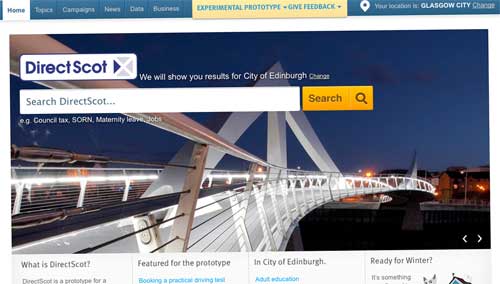Her Majesty’s Government has made occasional forays into the world of Buzzfeed. I thought the Foreign Office’s use of the platform to rebut claims by Russia Today was quite amusing, and entirely appropriate. A very serious message presented in an ultra digestible format.
Earlier this week, someone in UK central government (the Treasury?) put together a list of 12 things you could buy with the £1,400 that Scottish people are better off per capita by remaining in the UK… and posted it on Buzzfeed. Complete with photos of Lego scenes.
Now I have to say, I don’t feel at all comfortable with Whitehall, the Civil Service, the organs of state taking a position on the Scottish referendum like this.
I agree entirely with the assertion (posted on a gov.uk explanatory page) that ‘there is a demand for the provision of information which will enable voters to come to an informed decision’. If the conclusion arising from unbiased consideration is clearly in one direction rather than the other, they should say that.
But they should do so whilst standing clearly outside the fray. If the Yes campaign wins, Whitehall needs to negotiate a smooth exit from the Union, having been an active combatant on the opposite side. It means they would enter any such negotiations at an immediate and irretrievable disadvantage.
If they are going to take a stance, and campaign actively in its favour, they might as well articulate their conclusions in a digestible format (listicle), and post it in an appropriate place (Buzzfeed). Yes, it might create a few ripples in the Scottish media – and indeed it has: they probably wanted that anyway. But it’s easy to shrug off. Sure, it’s Buzzfeed. What do you expect?
But I think it’s a huge mistake to bring that into the universally acclaimed gov.uk site, as they have now done. Steph Gray describes it beautifully in a post on his Postbureaucrat blog.
Library content answers questions… It has credibility, and a certain longevity, if maintained appropriately. These days, GOV.UK is the natural home for most library content in central government.
Café content is what you create to get people talking. (It) needs to exist in the context of a solid strategy, and often will point people to your library content where they can find out more, sign up for something, join a campaign or give you their feedback.
Keep the library and the cafe distinct spaces, and find out how best to make them work together.
He also points to the deeply troubling ‘imaginable situation’ of the civil service being instructed to campaign for exit from the EU. And I now wish he hadn’t.

